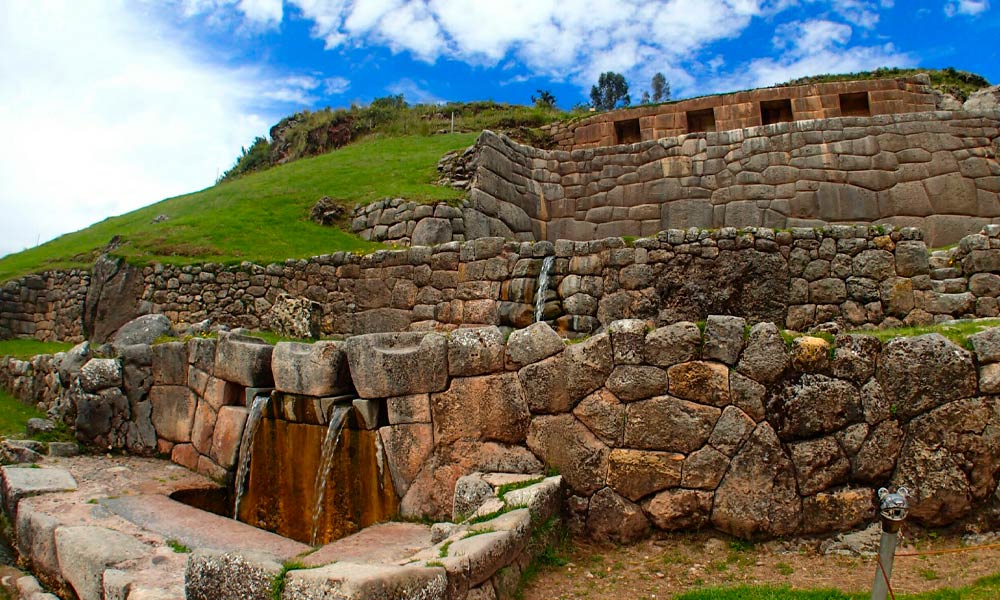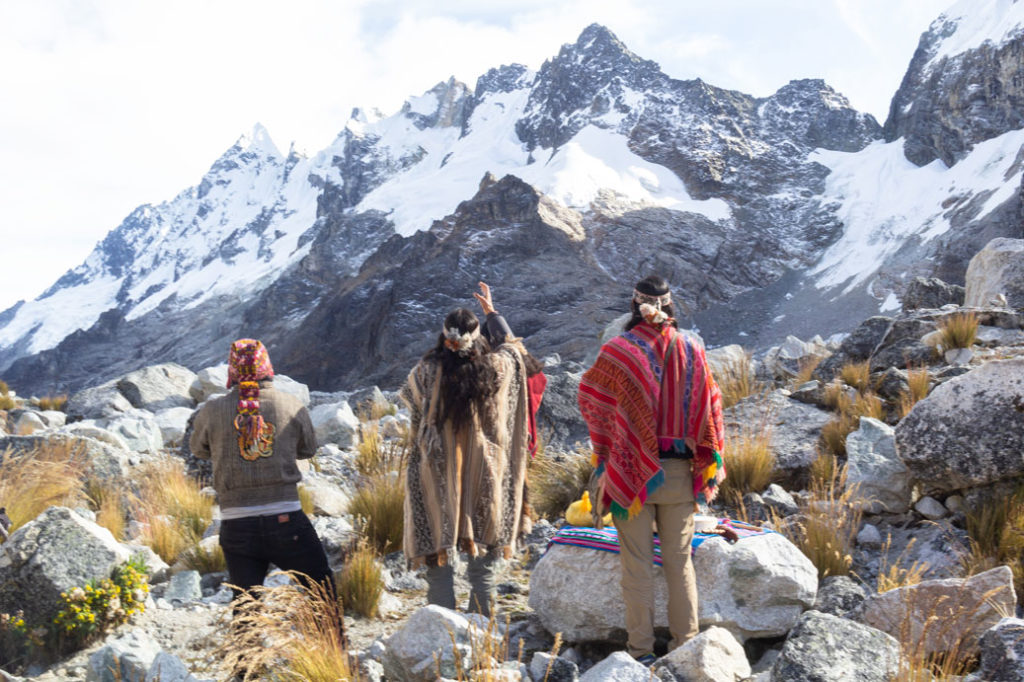In the heart of the Andes, a ritual known as the sacred “Kintu” holds profound significance in indigenous cultures, particularly among the Quechua people. This ancient practice involves the offering of coca leaves in sacred ceremonies and rituals. In this exploration, we delve into the rich symbolism and meaning behind the Kintu, shedding light on its cultural importance and spiritual depth.
The Kintu Tradition: A Glimpse into Andean Spirituality
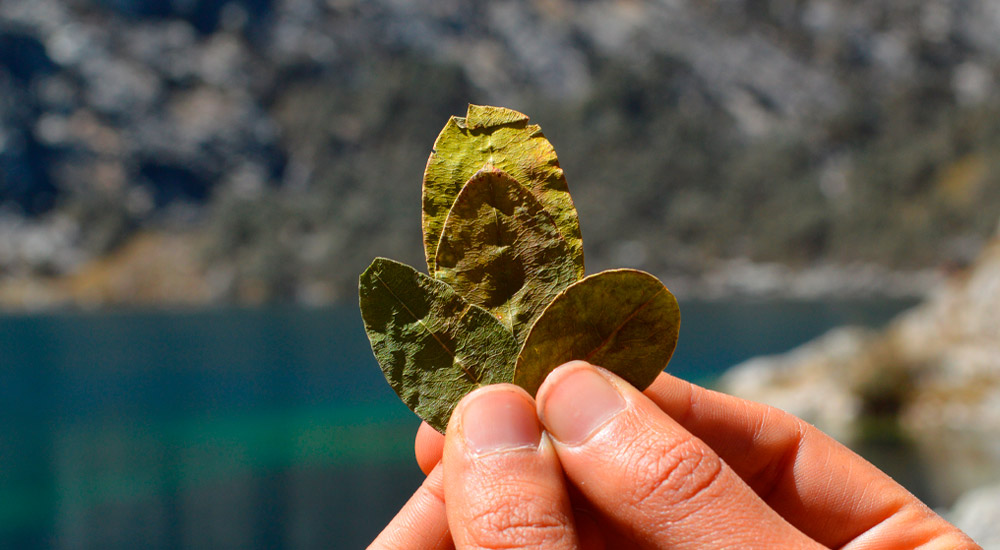
The sacred Kintu tradition is deeply rooted in the spiritual beliefs and practices of Andean communities. It is a gesture of reverence, gratitude, and connection to the spiritual world. At its core, the Kintu represents the harmonious relationship between humans, nature, and the cosmos—a fundamental aspect of Andean cosmology.
The Coca Leaf: A Sacred Gift from Pachamama
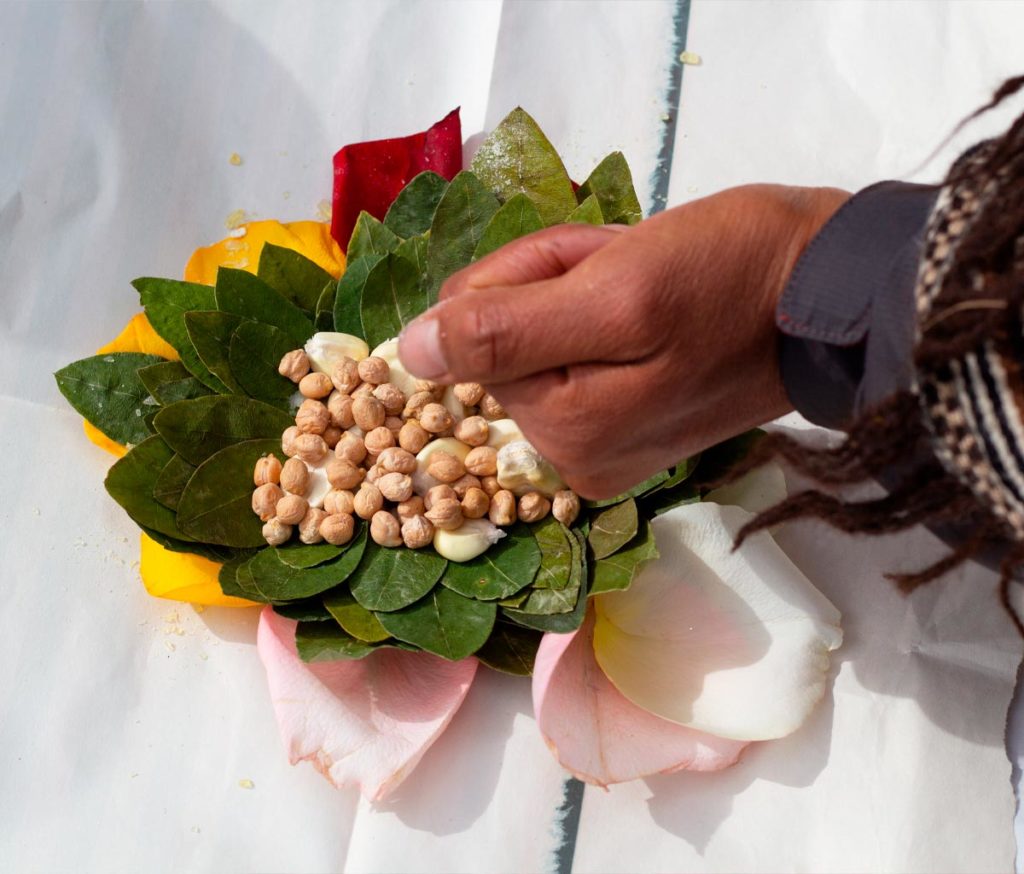
Central to the Kintu is the coca leaf, a plant considered sacred in Andean culture. Known as the “Mother of Leaves” or “Mama Coca,” it is believed to be a gift from Pachamama, the Earth Mother. Coca leaves are seen as a bridge between the mundane and the divine, a conduit for communication with the spiritual realm.
The Kintu Offering: Symbolism and Ritual
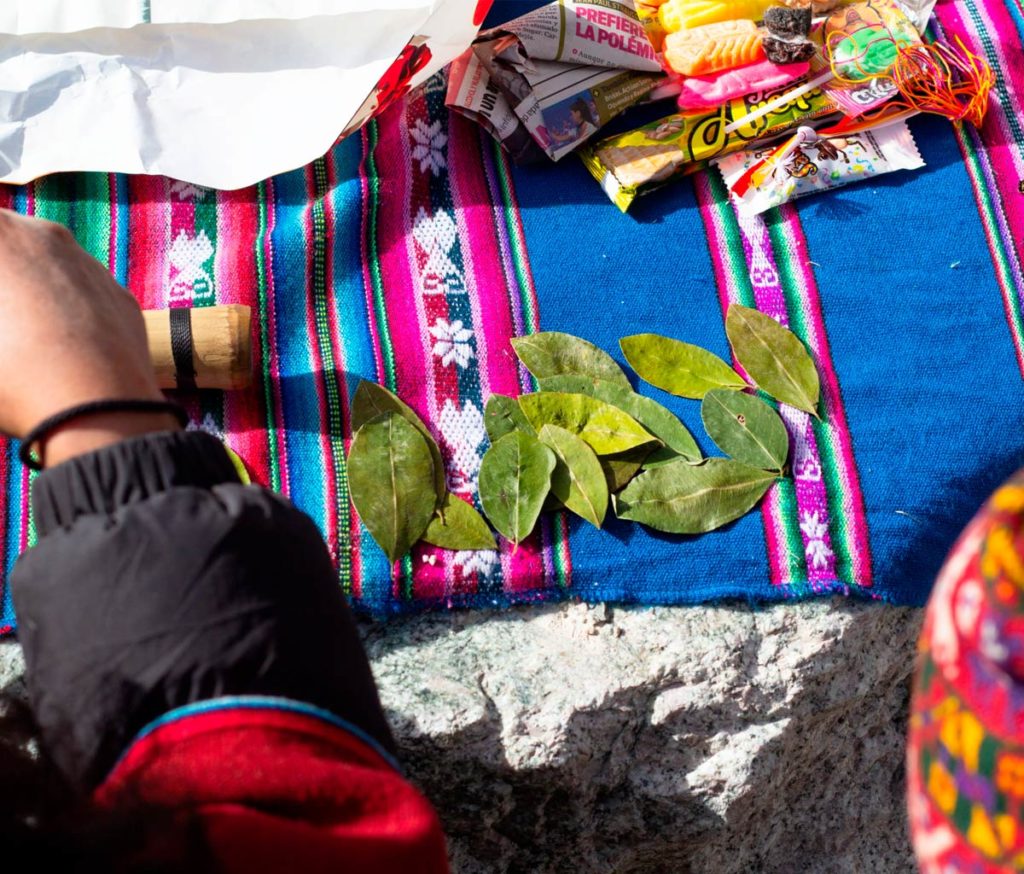
A Kintu offering typically consists of three coca leaves carefully selected and arranged in a specific manner. The arrangement is symbolic: two leaves are placed together, overlapping, while the third leaf is laid on top, forming a cross-like shape. This configuration represents the duality and balance inherent in Andean thought, such as the complementary forces of male and female, earth and sky, and the physical and spiritual worlds.
The Role of Intention and Prayer
When presenting a Kintu, intention plays a vital role. Each leaf carries the prayers and intentions of the person making the offering. It is a moment of deep spiritual connection, as individuals communicate their hopes, gratitude, and requests to the spirits and deities of the Andean pantheon. These intentions may vary, from seeking protection and guidance to expressing gratitude for a bountiful harvest or well-being.
Kintu Offerings in Rituals and Ceremonies
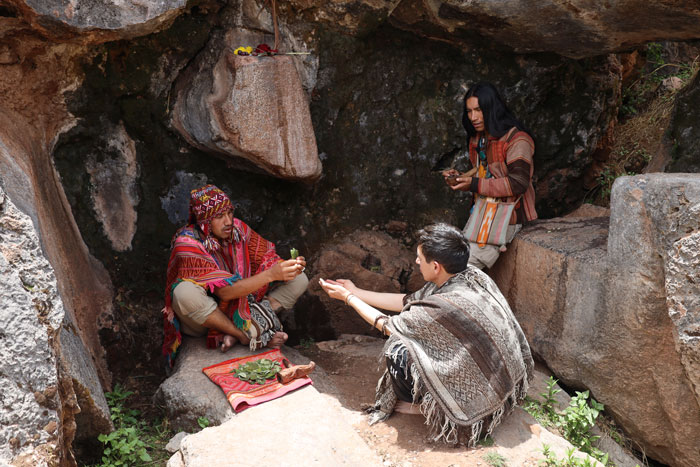
Kintu offerings are central to various ceremonies and rituals in Andean culture. They are made during agricultural ceremonies, rites of passage, and celebrations of the cycles of nature. The act of giving and receiving a Kintu is a gesture of reciprocity with the unseen forces that influence daily life. It fosters a sense of unity with the natural world and honors the ancestral wisdom passed down through generations.
Kintu and Coca Leaf Readings
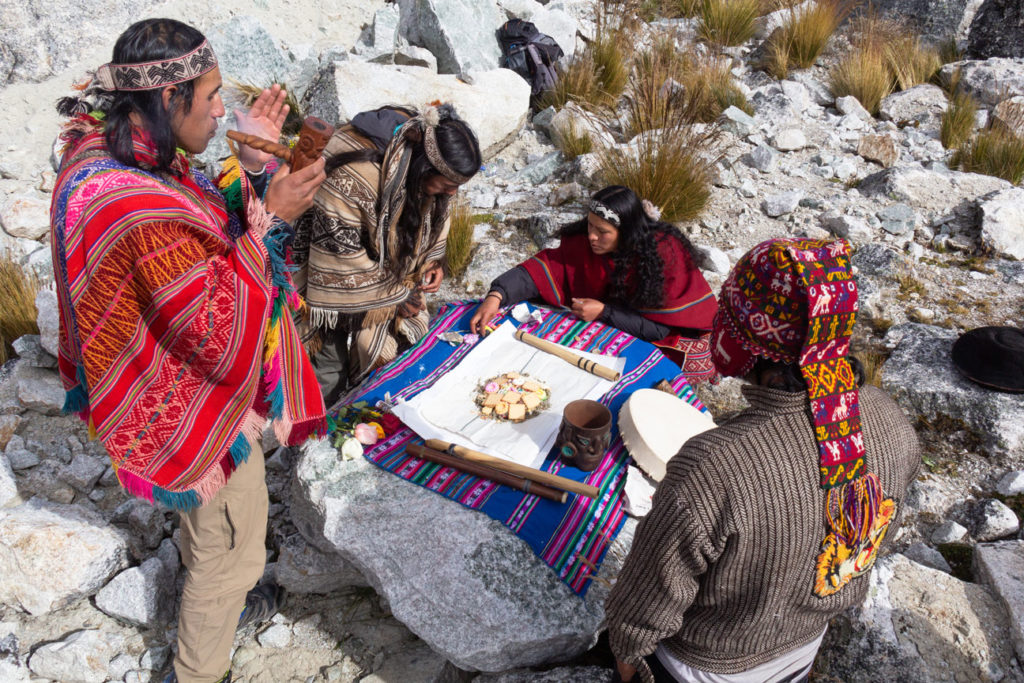
In some ceremonies, coca leaves are also used for divination. A traditional healer, known as a “yatiri” or “curandero,” may perform a “cocada” or coca leaf reading. By interpreting the arrangement and positioning of coca leaves, the healer can provide insights into a person’s well-being, challenges, or the causes of spiritual disharmony. This practice underscores the multi-faceted role of coca leaves in Andean spirituality.
The Kintu Today: Balancing Tradition and Modernity
In the face of modernization and external influences, the Kintu tradition continues to thrive. It is a testament to the resilience of indigenous cultures and their commitment to preserving their spiritual heritage. While some aspects of the Kintu may have evolved, the core values of gratitude, respect for nature, and spiritual connection remain unchanged.
The Profound Legacy of the Kintu
The Kintu and the offering of coca leaves are not merely rituals; they are a testament to the enduring spiritual connection between the Andean people and the natural world. These practices provide a glimpse into the profound depth of Andean spirituality, emphasizing the importance of balance, reciprocity, and reverence for the sacred. As we explore the meaning of the Kintu, we are reminded of the wisdom that transcends time and the cultural treasures that enrich our world.


